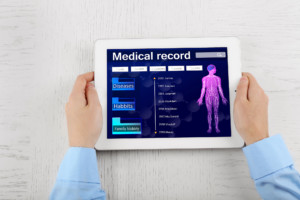 If you are going through a personal injury case, at some point, you will have to obtain copies of your medical records to present as evidence to support your claim. It is one of the determining factors for the amount of compensation you may receive to recover damages. Insurance companies heavily rely on medical records to get an accurate picture of the personal injury. Insurance adjusters use these records to examine the extent and nature of your injury and the costs you incurred in receiving medical treatment. Without proper, authentic medical documentation that can account for your injuries and medical treatment, it will be very difficult for your attorney to negotiate a settlement.
If you are going through a personal injury case, at some point, you will have to obtain copies of your medical records to present as evidence to support your claim. It is one of the determining factors for the amount of compensation you may receive to recover damages. Insurance companies heavily rely on medical records to get an accurate picture of the personal injury. Insurance adjusters use these records to examine the extent and nature of your injury and the costs you incurred in receiving medical treatment. Without proper, authentic medical documentation that can account for your injuries and medical treatment, it will be very difficult for your attorney to negotiate a settlement.
Why Medical Records Are Important In A Personal Injury Case
There are several ways medical records play an important role in a personal injury case:
What Medical Records Can You Get?
The Health Insurance Portability and Accountability Act (HIPAA) grants access to patients for acquiring copies of their medical records. They have the right to review their original medical records at the medical provider’s office as well.
According to HIPAA, patients can view all their medical records, except the following:
If the medical provider turns down your request, they must give you a denial letter. You may be able to appeal against the denial in some cases.
The Process of Getting The Medical Records
While each healthcare provider may have distinct rules and processes for people to place a request for their medical records, the most common way is to:

Medical records play a critical role in determining the amount of compensation for your personal injury case. If you are having difficulty in obtaining the records or have been denied access to them, you should let your personal injury attorney handle this matter. Contact the Law Offices of Robert T. Edens, P.C. at (847) 395-2200 or online today to schedule your initial consultation and evaluate your legal options.